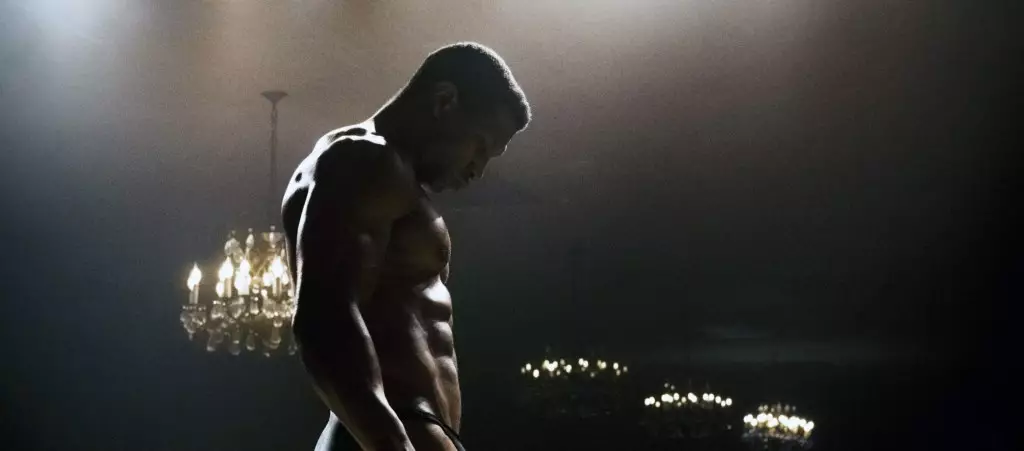In a disheartening turn of events for what many anticipated would be a blockbuster weekend, *Dreams*, the much-lauded film starring Jonathan Majors, is projected to garner only $700,000 from 815 theaters. While this figure appears respectable—especially in New York and sunny Los Angeles—it starkly contrasts with the expectations set by early buzz and impressive audience engagement, reflected in a staggering 91% verified audience score on Rotten Tomatoes. Industry insiders initially hoped for at least a $1 million opening as grassroots enthusiasm swelled. The film, hailed as a strong contender at Sundance in 2023, flounders under the weight of its leading man’s recent legal troubles, showcasing how swiftly the film industry’s fortunes can shift.
Critically, the film now embodies a cautionary tale for indie cinema, grappling with a complex interplay of audience sentiment and powerful narratives. The shadow cast by Majors’ controversies—particularly a guilty verdict for misdemeanor counts of assault against an ex-girlfriend—renders the film’s release a peculiar moment of hesitation among viewers. The cinema landscape is as much about perception as it is about the craft itself, and in this case, personal invocations of scandal and the subsequent moral calculations are at the forefront of consumer choice. As a center-right perspective might argue, the boundary of artistic appreciation can easily blur when the artist’s misdeeds become painfully public.
Undercurrents of Antisemitism in Documentaries
Amidst this turbulent context, another film is taking an unexpected leap in the charts: Briarcliff’s documentary, *October 8*. With projections suggesting a $250,000 weekend from 113 theaters, this documentary about the alarming rise of antisemitism in the United States following the Hamas attack on Israel is striking a chord with audiences. This documentary has been gaining momentum, logging impressive week-day viewings that topped $100,000 on several occasions.
This rising trend of documentaries tackling sensitive and pressing social issues reflects an urgent desire among audiences to confront uncomfortable truths. Yet, what is often overlooked is the paradox in this phenomenon. The discomfort does not always translate to box office success unless the political narrative resonates profoundly with prevailing sentiments. Through a center-right lens, one might argue that while tackling these issues must be done with sensitivity, a demand for accountability must be matched with acceptance of differing viewpoints. This becomes particularly salient as *October 8* navigates complex social politics and dives into the painful narratives that many would prefer to ignore.
The Resilience of Indie Films
In additional indie news, a surprise standout emerged this weekend in *Secret Mall Apartment*, which boasts one of the highest per-screen averages for a documentary in the past six years. With a projected $40,500 from a single screening in Providence, RI, this film illustrates how unique storytelling can triumph despite the doom and gloom surrounding mainstream releases. The narrative follows a group of displaced artists who decide to fight back against encroaching commercialism and gentrification by constructing their own underground living space in the heart of a mall. This spicy dose of rebellion leads some to question whether traditional structures of art consumption can withstand the evolving landscape.
*Crisis breeds creativity* is often a mantra in the arts, and this film’s success speaks volumes. If audiences reward unconventional methods of storytelling, it presents an opening for the industry, especially as a plethora of traditional studios falter. A more center-right viewpoint might see this as a fresh opportunity for capitalism and innovation, where indie films—unshackled from studio directives—can explore not just marginalized voices but radical narratives that challenge conventional thought.
Emerging Trends Amidst the Chaos
Fox’s *The Avenue*, produced by cinema veteran Sam Raimi, opened strong in its debut, drawing $964,000 across nearly 1,000 locations. Starring Jon Skarsgård and Anthony Hopkins, this horror-thriller possesses the unique ability to captivate traditional theatergoers who might have otherwise opted for Netflix at home. The burgeoning competition among films indicates a subtle shift; audiences are beginning to appreciate the theatrical experience again, a sentiment often echoed in center-right circles emphasizing shared community.
Interestingly, further down the release ladder, we find *Bob Trevino Likes It*, which registered a modest yet impactful $58,000 across five screens. The film’s dual recognition at festivals signifies not just its potential to resonate broadly, but also the rising importance of narrative in driving viewer engagement. This is where the center-right perspective can shine; applauding narratives that resonate with heartwarming themes can serve to bridge divides and cultivate a more comprehensive market.
The fluctuations showcased in this weekend’s box office outcomes reflect not just viewer preferences but broader social currents. As indie films seek to navigate this landscape filled with uncertainty and shifting allegiances, they depict the resilience of creative expression—challenging the status quo amidst an often tumultuous backdrop. This interplay between artistic representation and consumer sentiment will shape the future of cinema, raising critical questions about the integrity of art in an increasingly polarized environment.

